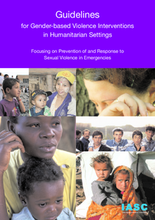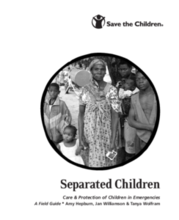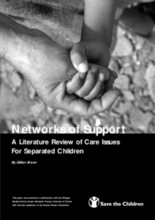Displaying 31 - 35 of 35
A regional assessment of responses to children outside parental care in the Caribbean. Extensive research on successful examples of alternative care. Includes recommendations and lessons learned.
Guidelines for the care of young children separated from their families in emergencies. Includes detailed information on prevention of separation, child registration and documentation, and family reunification.
Comprehensive guidelines for dealing with the planning, establishment, and coordination of multisectoral interventions to prevent and respond to sexual and gender-based violence.
This paper outlines some of the key issues facing separated children, which include physical, protective, psychosocial and guardianship needs. It describes program interventions to prevent separation, to trace and reunify families, to plan interim and long-term care arrangements for separated children.
This report reviews existing the literature on separated children and examines childhood, family, childcare practices and separation. It highlights the importance of context and child participation in designing programs and policies to assist separated children.





